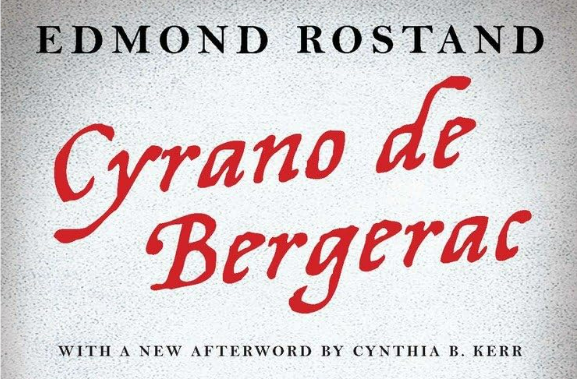Scene 4. VII.
byScene 4. VII. in Cyrano de Bergerac presents a vivid contrast between the looming threat of battle and the warmth of camaraderie that bonds Cyrano’s company. In the midst of preparations for an imminent assault, Roxane, undeterred by the chaos around her, insists on fulfilling her role, offering wine-soaked biscuits to the soldiers. Despite Christian’s desire to steal a private moment with her, Roxane remains committed to supporting the men, her actions infusing the tense atmosphere with a touch of domestic comfort. This moment illustrates her courage and selflessness, offering a rare glimpse of tenderness in a time of war. As Roxane serves the troops, the Gascon soldiers, attempting to conceal their feast when De Guiche arrives unexpectedly, generate an atmosphere of suspicion, which adds a layer of intrigue to the scene.
De Guiche’s entrance into the scene sparks a comedic series of events, as the soldiers feign innocence while struggling to hide their intoxication. Their exaggerated attempts to maintain composure, despite the obvious signs of their indulgence, create a series of humorous exchanges that lighten the otherwise grim atmosphere. The soldiers’ defiance, embodied in their tipsy bravado, showcases the Gascon spirit—improvising and making light of the situation in the face of adversity. De Guiche, who had intended to keep the situation under control, finds himself unwittingly caught up in their mirth, which further illustrates the contrast between the soldiers’ carefree attitude and his own disciplined military demeanor. This humor adds depth to the scene, highlighting the resilient and spirited nature of Cyrano’s company.
The dynamics among the soldiers evolve when De Guiche, moved by Roxane’s decision to remain with them, chooses to stay and offer his support. His decision to share the soldiers’ fate by contributing to the remaining cannon signifies a shift in his relationship with the troops, transforming him from an authority figure into a more sympathetic and integrated member of the group. This moment of solidarity reflects the humanizing influence of Roxane, whose bravery and unwavering spirit continue to inspire those around her. Her actions prompt De Guiche to reconsider his role and deepen his connection with the men, which is a rare occurrence in the context of the rigid social hierarchy of war. The scene encapsulates a subtle shift in the balance of power and respect between the soldiers and their commanding officer, offering a glimpse into the potential for unity despite the prevailing challenges.
Roxane’s role in this transformation underscores her status as a beloved and revered figure, whose courage and resolve elevate the morale of the troops. Her actions catalyze De Guiche’s change of heart, reinforcing her significance in the narrative as a source of inspiration and strength. The moment when the soldiers openly share their hidden food with De Guiche symbolizes more than just a physical act of generosity; it represents a union of wills, a shared defiance against the adversities they face. It serves as a symbol of the themes of loyalty, valor, and the enduring human spirit, which continue to echo throughout the play. This moment encapsulates the ability of individuals, even in the most dire of circumstances, to come together in solidarity, transcending their roles and social positions.
Through this scene, the narrative emphasizes the power of personal connections and the ways in which individual actions can influence broader social dynamics. Roxane’s steadfastness not only strengthens the bonds between her and the soldiers but also shifts the perception of De Guiche, demonstrating the profound impact one person can have on a group. The shared experience of defiance, through both the soldiers’ humorous antics and their eventual unity, reinforces the play’s central themes of sacrifice, loyalty, and the strength of human connection in the face of conflict. The scene reminds readers that true leadership and valor are not defined solely by rank or authority but by the ability to unite and inspire others, even in the most challenging of circumstances.
This chapter is also a commentary on the complexities of leadership, highlighting the transformative potential of empathy and shared experience in overcoming adversity. De Guiche’s decision to stay and fight alongside the soldiers, after initially seeking to maintain distance, illustrates the potential for growth and change even within those who occupy positions of power. The interplay between personal loyalty and duty creates a powerful narrative that transcends the battlefield, encouraging readers to reflect on their own relationships and the ways in which personal integrity can influence the course of events. Through this powerful display of solidarity and defiance, the scene sets the stage for the upcoming conflict, while deepening the emotional resonance of the characters’ relationships.
In the context of personal growth and societal change, this chapter reminds us that the most profound moments of transformation often occur through human connections. The unifying power of shared sacrifice, as seen in the bond between Roxane, the soldiers, and De Guiche, highlights the potential for empathy to bridge gaps of authority and class. Research in social psychology shows that acts of solidarity and shared vulnerability often lead to stronger group cohesion and greater collective resilience. By exploring these themes, the narrative offers valuable lessons in leadership, unity, and the enduring strength of human connection, even amidst the harshest of circumstances.


